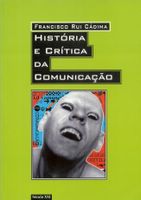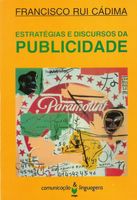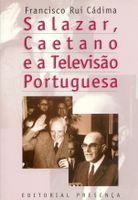Degradação e farsa na TVI
Recorde-se, nesta área, um anterior Comunicado da AACS SOBRE UM MODELO DE PROGRAMAS DE TELEVISÃO QUE PODE PÔR EM CAUSA A DIGNIDADE HUMANA DESIGNADAMENTE CONVERTENDO A PRIVACIDADE EM ESPECTÁCULO.
E ainda: POSIÇÃO DO COMITE PERMANENTE DA CONVENÇÃO SOBRE A TELEVISÃO TRANSFRONTEIRAS E A DEFESA DA VIDA PRIVADA DE PESSOAS CONSIDERADAS MAIS VULNERÁVEIS:
STATEMENT (2002) 1
ON HUMAN DIGNITY AND THE FUNDAMENTAL RIGHTS OF OTHERS (adopted by the Standing Committee on Transfrontier Television at its 31st Meeting, 12-13 September 2002)
The Standing Committee on Transfrontier Television of the Council of Europe, meeting in Strasbourg on 12-13 September 2002, has issued the following Statement, calling for increased vigilance by broadcasters and regulatory bodies as regards those television programmes which may be contrary to human dignity and the fundamental rights of others: "Recent practice in some European countries has shown that in developing competitive programme policies, designed to protect market share and boost the economic potential and revenues of their stations, some broadcasters draw on programmes formats and ideas which can infringe upon human integrity and dignity and expose the participants in these programmes to a complete loss of their private life, as well as to gratuitous physical or psychological suffering. In this context, the Standing Committee considers it necessary to recall the fundamental principles concerning human rights protection contained in the European Convention on Human Rights, as well as in Article 7 of the European Convention on Transfrontier Television, which lays down the primary responsibility of broadcasters as regards programme content, and provides that the presentation and content of programmes shall respect the dignity of the human being and the fundamental rights of others. Broadcasters are of course free to design their programme schedules and the content of their programming but under Article 7 of the Convention, general limits for content also apply: for example, obscene/pornographic images or racist, homophobic or xenophobic expressions are all proscribed. In this context, the Standing Committee recalls Recommendation No. R (97) 19 on the portrayal of violence in the electronic media, adopted by the Committee of Ministers of the Council of Europe in 1997.The Standing Committee draws the attention of broadcasting regulatory authorities in States Party to the Convention and other European countries, as well as broadcasters in these countries, to the need to pay particular attention to those programme formats which, depending on how they are produced and presented, may contain elements contrary to the general limits foreseen in Article 7 of the Convention, and could thus endanger respect for human life or dignity. In particular, the Standing Committee calls on regulatory authorities and broadcasters:- to co-operate and discuss among themselves on a regular basis on the question of television programmes which might contravene human integrity or dignity, with a view to seeking consensual co-regulatory or self-regulatory solutions - as far as possible - as regards such programmes;- to avoid contractual arrangements between broadcasters and participants whereby the latter relinquish substantially their right to privacy, since this may represent an infringement of human dignity. Contractual arrangements should be designed to protect the most vulnerable parties, namely the participants who may be tempted to waive their rights in the pursuit of popularity and money."
Recorde-se ainda a DELIBERAÇÃO SOBRE QUESTÕES DE PRIVACIDADE E DE DIGNIDADE HUMANA - Desde programas que convertem a privacidade em espectáculo, como o "Big Brother", até ao comportamento de órgãos de comunicação social sobretudo em reportagens sobre menores (Aprovada na reunião plenária extraordinária de 24.OUT.2000).









0 Comments:
Enviar um comentário
<< Home